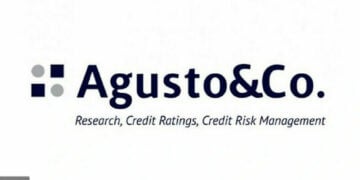Despite increased calls for gender diversity in leadership positions of companies, the board of highly capitalised companies, generally known as blue chip stocks are still dominated by men with women taking less than 25 per cent of leadership roles.
This was revealed in the Gender Diversity in Corporate Leadership report by Agusto Consulting, which showed that, the industry average of women holding board positions in the top listed 25 companies listed on the Nigerian stock exchange by market capitalisation as at the end of 2022, is 25 per cent and revealed that 17 of these companies had a male-dominated board composition greater than 70 per cent.
The report ranked United Bank for Africa (UBA) the highest at 50 per cent of women holding board positions while Larfage Africa Plc and Guinness ranked next with both having 45 per cent of women holding management positions. The board of BUA Foods currently has the highest recorded male-dominated board composition level of 100 per cent.
“UBA has the highest female board composition level, with its value standing at 50 per cent. Thus, UBA has an equal number of men and women on its board of directors. Asides from UBA, four other companies are close to the 50 per cent mark.
Lafarge Africa, Guinness, Stanbic Bank and Nigerian Breweries all have female board composition levels exceeding 40 per cent but less than 50 per cent.
“We also analysed companies with low female representation on their board as seen in Figure First Bank of Nigeria, BUA Cement, Geregu Power Plc, Union Bank and Okomu Oil all have low female board composition levels of 15 per cent and below. BUA Foods has the lowest female board composition level as it has no female board members. We note that all these companies fall below the 25% peer average.
“A further review of the board composition reveals that 10 companies added more women on their board between 2020 and 2022, thus signifying greater representation. Okomu Oil made an impressive move on its board from having no female representation in 2020 to 15 per cent representation by the end of 2022. Flour mills and Zenith Bank also recorded significant improvement between 2020 and 2022, moving from 7 per cent and 8 per cent respectively in 2020 to 20 per cent apiece by the end of 2022,” the report shows.
It revealed that Union Bank and BUA Foods experienced significant declines in their Female Board Composition Levels in the past year. The Female Board Composition of BUA Foods declined by 100 per cent to nil which implies the company has no female board member, while Union Bank’s composition declined by 44 per cent to 14 per cent.
However, between 2020 and 2021, these firms had minor declines in their female board composition levels, asides from First Bank, whose female board composition level declined by 60 per cent to 9 per cent.
It added that: “our research reveals that by the end of 2022, Nigeria still has lower representation of women on the board at an average of 25 per cent compared to South Africa at 35 per cent, UK at 41 per cent and United States at 35 per cent. Despite the relative progress in Nigeria, the cross-country review especially with South Africa reflects that there is still material room for improvement in Nigeria.
This is further buttressed by the fact that Nigeria’s 25 per cent threshold was largely achieved on the back of the push from companies that can be defined as being progressive on the diversity agenda. We note that the strong female representation on the boards of UBA, Lafarge and Guinness may have masked Nigeria’s underwhelming levels of female representation amongst the select companies.
“To boost female board representation, Nigeria will have to adopt a more bullish regulatory approach on the subject. For instance, in the UK, the Financial Conduct Authority (FCA), the country’s financial watchdog, proposed that for listed companies, at least one senior position, such as company chair, chief executive or chief financial officer, be held by a woman. It also states that at least 40 per cent of the board should reflect diversity.”
Acknowledging that the Nigerian Code of Corporate Governance (NCCG) makes no clear provision for the exact portion of female representation on the board, it noted that, the Code adopts a principle-based approach of voluntary compliance.
“The realities indicate that the intentions of the NCCG have been undermined by the level of underrepresentation of women on the board. In some instances, albeit amongst the negative outliers, there have been companies in Nigeria with only one and in some instances, no women represented on their board. Therefore, the NCCG, which is meant to serve as a moral guide to all Nigerian companies, is failing as not all companies have complied with these guidelines,” it stressed.











